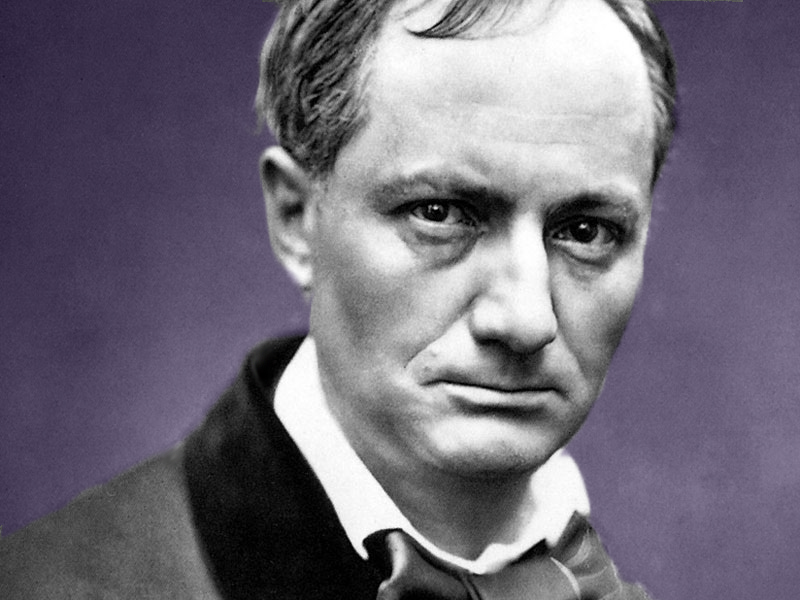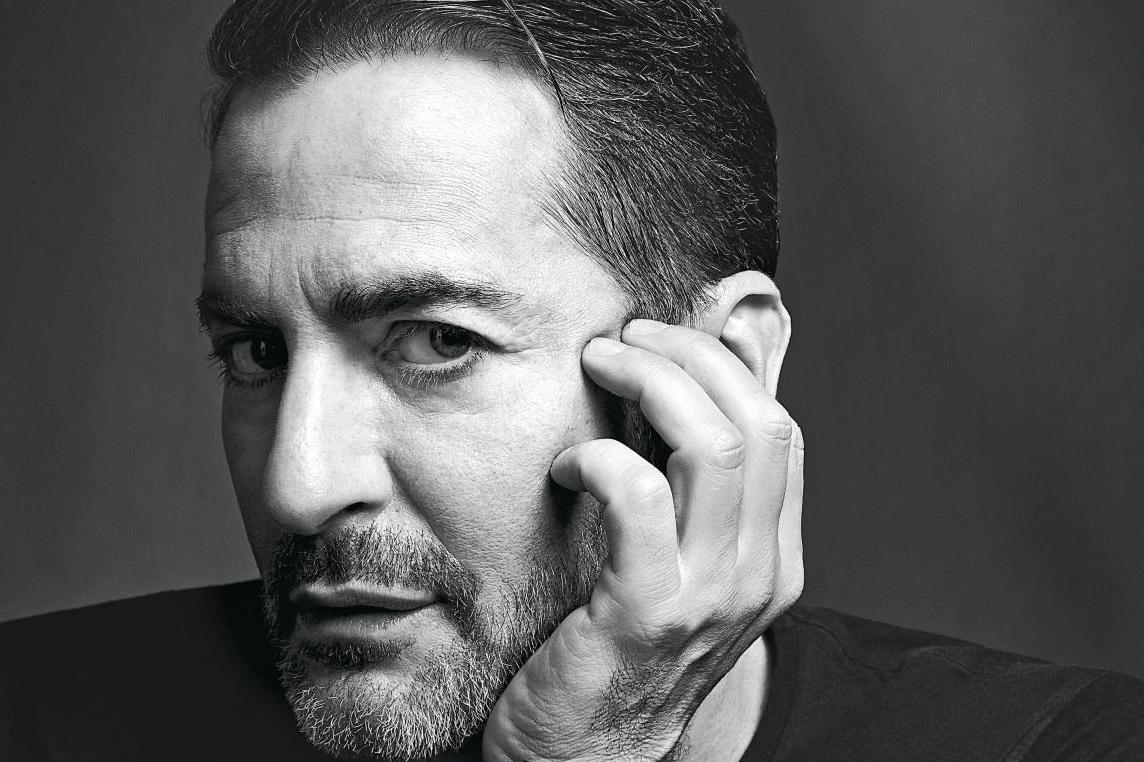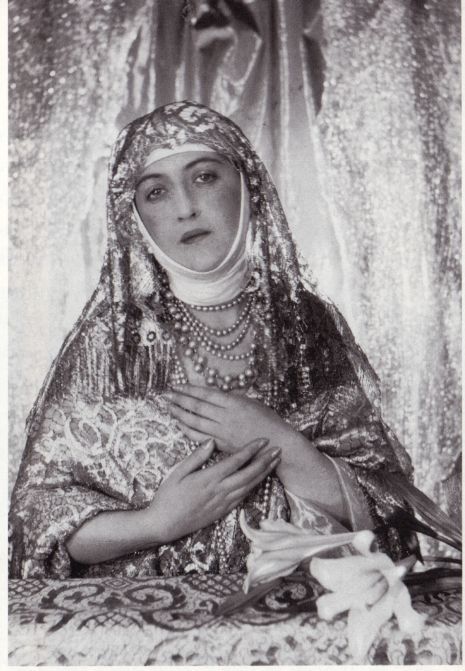|
Gay Wisdom for Daily Living brought to you by White Crane Institute ͏ ͏ ͏ ͏ ͏ ͏ ͏ ͏ ͏ ͏ ͏ ͏ ͏ ͏ ͏ ͏ ͏ ͏ ͏ ͏ ͏ ͏ ͏ ͏ ͏ ͏ ͏ ͏ ͏ ͏ ͏ ͏ ͏ ͏ ͏ ͏ ͏ ͏ ͏ ͏ ͏ ͏ ͏ ͏ ͏ ͏ ͏ ͏ ͏ ͏ ͏ ͏ ͏ ͏ ͏ ͏ ͏ ͏ ͏ ͏ ͏ ͏ ͏ ͏ ͏ ͏ ͏ ͏ ͏ ͏ ͏ ͏ ͏ ͏ ͏ ͏ ͏ ͏ ͏ ͏ ͏ ͏ ͏ ͏ ͏ ͏ ͏ ͏ ͏ ͏ ͏ ͏ ͏ ͏ ͏ ͏ ͏ ͏ ͏ ͏ ͏ ͏ ͏ ͏ ͏ ͏ ͏ ͏ ͏ ͏ ͏ ͏ ͏ ͏ ͏ ͏ ͏ ͏ ͏ ͏ ͏ ͏ ͏ ͏ ͏ ͏ ͏ ͏ ͏ ͏ ͏ ͏ ͏
|
|
||||
| This Day in Gay History | ||||
April 09Born 1821 - CHARLES BAUDELAIRE, French poet (d. 1867); born to a bourgeois family, the author of Les Fleurs du Mal for a while lived the modish life of a literary dandy on an inheritance from his father, reluctantly joining the Paris bohème when his fortune ran dry. His character, as we view him from the 20th century, is perverse and fascinating. Critics see in him a conflict of many opposites: he was both a Catholic and a satanist, debauchee and mystic, cynical sensualist and yearner for purity. Unable to excel in virtue, he made himself a legend of vice. He was probably homosexual, or at least Marcel Proust thought so, as did Andre Gide, Roger Peyrefitte, and many others. The floppy cravat Baudelaire affected became all the rage of European dandies during the first decades of the 20th century, Gays having adopted him as their very own at an early date. 1909 - The Australian dancer, actor, director and choreographer SIR ROBERT MURRAY HELPMANN CBE was born on this date (d. 1986). Born Robert Murray Helpman, he added the extra 'n' to avoid his name having a numerologically unlucky 13 letters, at the suggestion of the dance diva Anna Pavlova, who was a devotee of numerology. He was born in Mount Gambier and also boarded at Prince Alfred College in Adelaide, South Australia. The Helpmann Academy in South Australia, a partnership of the major visual and performing arts education and training institutions in South Australia offering award courses for people seeking professional careers in the arts, was named in his honor. In 1938, Helpmann met a young Oxford undergraduate while fulfilling an invitation to dance at the university. Immediately drawn to the handsome and intelligent Michael Benthall, the pair formed a relationship that was to last for 36 years until the English theater director Benthall's untimely death in 1974. The couple lived and often worked together quite openly for the time. In 1965 Helpmann returned to Australia to become co-director of the Australian Ballet. Since he was Gay and flamboyant, his arrival in what was at that time a very conservative country caused some consternation. Australians were proud of his international fame, but not sure what to make of him personally. His most significant contribution to the development of theatre in Australia was his time with the Australian Ballet. The avant-garde nature and sexual overtones of much of his work unsettled many Australians. He did not endear himself with the comment: "I don't despair about the cultural scene in Australia because there isn't one here to despair about." Helpmann's obituaries in the Australian media were suitably laudatory, but reserved. The country paid him the highest final recognition it could by honoring him with a state funeral in Sydney, the eulogy calling him "a genius, an outstanding communicator of unique inspiration and insight. He asserted his rights to pursue a path that improved the quality of life of the nation, and defeated the common herd of detractors." An obituary in The Times in London, characterized his appearance as "strange, haunting and rather frightening", and portrayed him as "a homosexual of the proselytizing kind" whose impact upon a company was "dangerous as well as stimulating", creating fresh headlines in Australia. We salute you sir. 1963 - MARC JACOBS, American fashion designer, born; an American fashion designer. He is the head designer for Marc Jacobs, as well as the diffusion line Marc by Marc Jacobs. Jacobs is currently the creative director of the prestigious French design house Louis Vuitton. Jacobs, who is openly gay, has been in a relationship with retired escort Jason Preston since 2005. However, in February 2008, it was reported that Jacobs was engaging in an affair with escort and porn star Erik Rhodes. 1966 - CYNTHIA NIXON, American actress, born today; A Tony and Emmy Award-winning actress best known for her portrayal of lawyer Miranda Hobbes in the popular HBO dramedy Sex and The City (1998–2004). Nixon has two children, daughter Samantha and son Charles Ezekiel with Danny Mozes, an English professor, with whom she had a relationship from 1988 to 2003. In 2004, it was reported that Nixon had been in a nearly year-long relationship with the education activist Christine Marinoni. In 2005, the New York Post and other sources reported that Nixon had moved to Brooklyn to live with Marinoni. However, Nixon told the The New York Times in January 2006 that she had not moved and that keeping her kids in their Manhattan public schools took priority. Discussing her relationship in an interview in New York Magazine in 2006, Nixon stated that she never felt any struggle with her sexuality: "I never felt like there was an unconscious part of me around that woke up or that came out of the closet; there wasn't a struggle, there wasn't an attempt to suppress. I met this woman, I fell in love with her, and I'm a public figure." Nixon's bears a strong resemblance to 19th century poet Emily Dickinson, and plays her in the new biopic A Quiet Passion. In March 2018 Nixon announced her candidacy for governor of the State of New York. She has been active in politics and education or over 15 years. The contest will likely become one of the marquee Democratic primaries in the nation, as Ms. Nixon is widely expected to challenge Mr. Cuomo from the political left. Her campaign immediately cast Mr. Cuomo as a “centrist and Albany insider,” and some of her initial rhetoric on inequality echoed Senator Bernie Sanders. “We are now the most unequal state in the entire country, with both incredible wealth and extreme poverty,” she said in a video announcing her candidacy. If elected, Ms. Nixon would become the first female governor, and the first openly Gay governor, in New York history Died 1941 - Dorothy Ierne Wilde, known as DOLLY WILDE, died on this date (b: 1894); Wilde was an English socialite, made famous by association with her internationally famous uncle and her reputation as a witty conversationalist. Her charm and humor made her a popular guest at salons in Paris between the wars, standing out even in a social circle known for its flamboyant talkers. Before there was Paris Hilton, the uber-celebrity socialite of the early 20th century was Dolly Wilde, a witty, bon vivant who constantly lived on the legacy of her famous uncle, the poet Oscar Wilde. But unlike Hilton, Wilde was not rich and used her natural talent as an eloquent storyteller to live with friends as the perpetual– and notorious– guest. Sadly, she never used her talent to make a mark in literary history. Her father was Oscar’s brother, Willie, an alcoholic journalist who died early. Her mother then married the translator Alexander Teixeira de Mattos, who became her stepfather. Growing up, Dolly idolized her uncle despite her family turning their back on him. She went to France in 1914 to become an ambulance driver during World War I. It was around that time that she met and developed a relationship with a fellow ambulance driver, the Standard Oil heiress Marion “Joe” Carstairs, who would become famous in her own right as the "World's Fastest Woman." Having only a small fund from her stepfather, Dolly moved on to the Paris salons and parties, living glamorously in hotels and houses of her rich friends. Noted writer Djuna Barnes once turned Dolly into a character in her work, Ladies Almanack, as "Doll Furious." But the jealous Dolly didn’t like Djuna, saying: “Why should you be the one with genius? If anyone has it, it should be me.” Dolly had many affairs, one of which was with the silent screen actress Alla Nazimova. But the love of her life was the writer, Natalie Clifford Barney. Meanwhile, Lady Una Troubridge once described her as “the better man” as compared to her uncle. Dolly was a heavy drinker and got into heroin. She tried to rehabilitate herself but failed, becoming addicted to the sleeping draught paraldehyde instead. She was later diagnosed with breast cancer in 1939, but she refused surgery and preferred alternative treatment. At the start of World War II and the Germans advancing on Paris, she moved back to London in 1940. In April 1941, she died of a possible drug overdose. With Dolly’s death, Barney said that “just as no one’s presence could be as present as hers, so no one’s absence could be so absent.” Noteworthy 1994 - Canadian cartoonist Lynn Johnston introduces a Gay character into her nationally syndicated strip, "For Better or For Worse." Nineteen papers cancelled the strip and forty asked for substitutions. One result of the story line was that Johnston was made a jury-selected "nominated finalist" for the Pulitzer Prize for Editorial Cartooning in 1994. The Pulitzer board said the strip "sensitively depicted a youth's disclosure of his homosexuality and its effect on his family and friends." | ||||
|
|8|O|8|O|8|O|8|O|8|O|8|O|8|O|8| Gay Wisdom for Daily Living from White Crane Institute "With the increasing commodification of gay news, views, and culture by powerful corporate interests, having a strong independent voice in our community is all the more important. White Crane is one of the last brave standouts in this bland new world... a triumph over the looming mediocrity of the mainstream Gay world." - Mark Thompson Exploring Gay Wisdom & Culture since 1989! |8|O|8|O|8|O|8|O|8|O|8|O|8|O|8| | ||||
|
|||||
|







